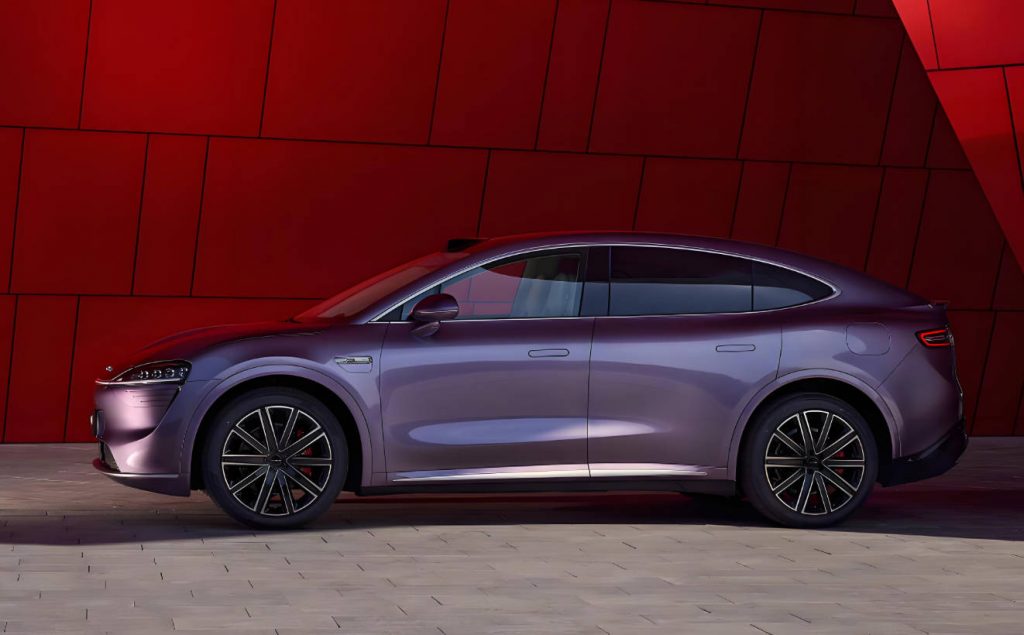New Developments in the Global Top 100 Automotive Parts Suppliers: The Strength of Chinese Enterprises Shines
Recently, Automotive News released its 2024 list of the top 100 global automotive parts suppliers, highlighting some impressive developments. Chinese companies have once again made a mark, with Gotion High-tech and Sanhua Automotive Components making their debut on the list, while CATL has advanced further, staying ahead of Bosch, ZF, and Magna International in the rankings. Chinese enterprises now occupy 15 spots on the list, with five of them breaking into the top 50, showcasing the vibrant growth and strong competitiveness of China’s automotive parts industry.

New Opportunities and Challenges Amid Industry Transformation
As the automotive industry transitions towards electrification and intelligent technology, Chinese automotive parts companies are at the forefront of this transformative wave. This shift not only offers unprecedented career development opportunities for industry executives but also presents new challenges. This article will analyze industry trends in-depth and provide practical job-seeking strategies and insights for ambitious executives.
Electrification and Intelligent Technology: The Dual Drivers of Industry Progress
The automotive industry is accelerating towards an electrification era, with the “three electric systems” becoming a focal point in the market. The electrification process in China’s passenger vehicle market significantly accelerated in 2023, with both sales and penetration rates rising. This trend is expected to continue into 2024, setting new records in market size and penetration rates. As a result, the demand for core components such as power batteries and electric drive systems has surged. Lithium iron phosphate batteries, with their economic advantages, dominate the market, while automakers are speeding up the development and production of their own battery cells, driving synergy across the industry chain.
Moreover, the rapid development of autonomous driving and smart connectivity technologies is reshaping the automotive landscape. The commercialization of autonomous vehicles, such as “RoboTaxi,” marks a shift from experimental phases to market reality, accelerating the industry. However, accompanying technological ethics issues need to be addressed collaboratively within and outside the industry.
Lightweight Design: Enhancing Efficiency and Performance
Lightweight design is increasingly recognized as a key method to improve automotive efficiency and performance. The widespread use of new materials such as high-strength steel, aluminum alloys, and composite materials effectively reduces vehicle weight, enhancing energy utilization efficiency and dynamic response capabilities. This not only extends the range of electric vehicles but also lays a solid foundation for more advanced autonomous driving technologies.
Collaborative Innovation: Building a Tight-Knit Supply Chain Ecosystem
In response to the digitalization and intelligence wave, the automotive industry’s development model is increasingly aligning with that of the consumer electronics sector. Rapid product iteration demands closer cooperation between parts suppliers and OEMs to drive technological innovation and product development. By engaging early in the R&D process, suppliers can better grasp market needs, accelerate product launch speeds, and meet diverse and personalized consumer demands.
Additionally, the entry of consumer electronics companies into the automotive sector has intensified competition. Suppliers need to continually enhance their technological capabilities and responsiveness to stay competitive in the market.
Global Expansion Strategy: Extending Market Reach
Chinese automotive parts companies are actively pursuing international expansion through mergers and acquisitions. Companies like Joyson Electronics have set a successful example for Chinese enterprises. However, the differences and complexities of various national markets require companies to conduct thorough research and implement precise strategies for localized operations and sustainable development.
Executive Strategies: Navigating Change and Seizing Opportunities
In the face of industry transformation, executives must maintain sharp insights and decisive actions. Foreign-invested enterprises should focus on strategic adjustments, digital transformation, and organizational optimization, while private enterprises should actively explore international markets, secure financing, and seek new growth points.
For individuals, staying updated with industry trends, carefully selecting companies, enhancing comprehensive skills, embracing challenges, and expanding networking resources are key to seizing career opportunities. Only by continuously adapting to market changes can one remain competitive in a challenging environment.
In summary, the automotive parts industry is at a pivotal point of rapid development and profound change. Both companies and individuals need to seize opportunities, face challenges, and continuously innovate to achieve sustainable growth.

Comments are closed